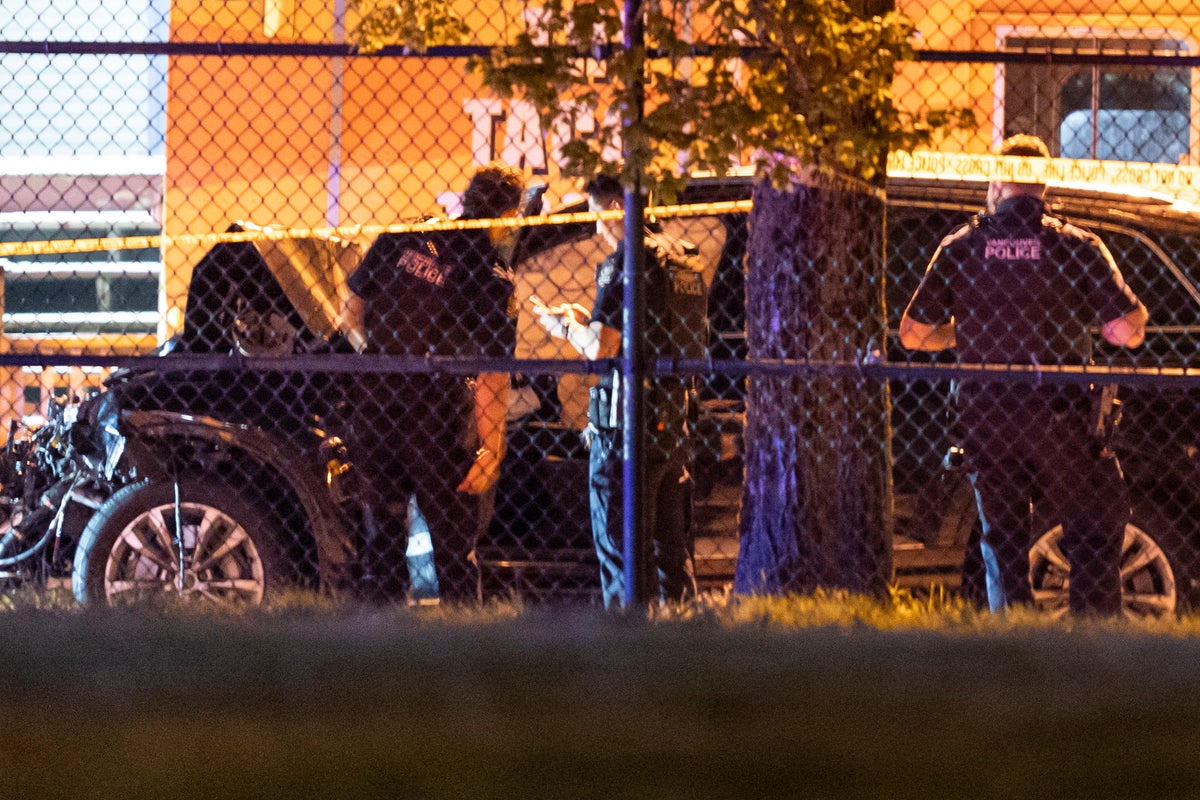The Supreme Court Just Imperiled the Rights — and Lives — of All Trans People
The court let a military trans ban go into effect — potentially setting a precedent to accept the anti-trans myth behind Trump’s executive order. The post The Supreme Court Just Imperiled the Rights — and Lives — of All Trans People appeared first on The Intercept.


The Supreme Court ruled on Tuesday that Donald Trump’s ban on trans people serving in the military could be enforced while legal challenges against the policy continue.
The ban on trans service members — one of Trump’s early executive orders in a tidal wave of discriminatory directives — had been blocked by lower courts. U.S. District Judge Ana Reyes, one of the judges who previously ruled to block the ban in February, said the executive order showed “unadulterated animus” to “an entire group of people.” Anti-trans animus is all there is: The government has made no effort to show that trans service members have been detrimental to military objectives, discipline, and cohesion — because it’s a lie.
That lie didn’t stop the Supreme Court’s conservative majority form its ruling to permit the enforcement of the ban. And the consequences could reach far beyond this case itself.
That the enforced ban risks immediately upending the lives of over 4,200 people currently serving in the military with a recorded diagnosis of gender dysphoria — the metric by which the military tracks the number of trans troops — is a cause of great concern. They can now be discharged for their gender identity alone, even while the policy’s legality remains in question.
The order repeats an anti-trans myth: that there’s something dishonest and deceptive about being trans at all.
Then there is the risk that the military ban’s logic gets applied more widely — beyond the confines of an institution of imperial violence. For those of us who see little liberatory about trans-inclusion in the military, this broader application is terrifying.
If the sick premise of Trump’s executive order is accepted in a Supreme Court precedent, it would be a further threat to the already imperiled rights of trans and nonbinary people everywhere in the country.
At the heart of the executive order is the claim that being trans “conflicts with a soldier’s commitment to an honorable, truthful, and disciplined lifestyle, even in one’s personal life.”
The language repeats a most pernicious anti-trans myth: that there’s something dishonest and deceptive about being trans at all.
Such profoundly discriminatory and false assumptions have long had purchase in U.S. courtrooms through the so-called gay and trans “panic” defense. This line of argumentation, as the American Bar Association notes, permits defendants to bolster diminished capacity defenses and “seek to partially or completely excuse crimes such as murder and assault on the grounds that the victim’s sexual orientation or gender identity is to blame for the defendant’s violent reaction.” It is rooted in the very same cis-supremacist presumption that undergirds Trump’s executive order.
In the 30-plus states where this defense is still allowed, gender nonconformity can therefore be framed as not only deceitful, but also a deception for which violence is seen as an understandable response.
Reyes, the federal judge, said that Trump’s military ban calls “an entire group of people lying, dishonest people, who are undisciplined, immodest and have no integrity.” She demanded of the government’s lawyer at the time; “How is that anything other than showing animus?”
“I don’t have an answer for you,” the Justice Department attorney, Jason Lynch, replied.
“You do have an answer,” said Reyes. “You just don’t want to give it.”
Will They Ever Say No?
The Supreme Court’s decision did not stay Reyes’s injunction; it was already stayed by a D.C. District Court. The Tuesday high court ruling overturns another block on the ban: a nationwide injunction issued by a federal District Court in Washington state, which was upheld by the 9th U.S. Circuit Court of Appeals.
The case, brought by seven active service members and another person who planned to enlist, now returns to the 9th Circuit for review. The Supreme Court did not offer any reasoning for its decision, which is technically temporary, given that the legal fight is ongoing. It was only noted that the three liberal justices —Sonia Sotomayor, Elena Kagan, and Ketanji Brown Jackson — dissented.
“By the time the Ninth Circuit, and ultimately the Supreme Court, issues a final ruling, the damage will already have been done,” wrote trans journalist and advocate Erin Reed. “Service members will have been removed not for misconduct or performance, but solely for being transgender.”
Reed noted that “the Court’s willingness to greenlight these separations now offers a sobering preview of where it likely stands on the constitutional rights of transgender people — and the likely outcome of the case.”
The Supreme Court’s right-wing justices have already given us reasons for concern about an upcoming ruling that could determine the fate of trans youth health care in the country. In oral arguments last year for United States v. Skrmetti — the case challenging Tennessee’s draconian blanket ban on gender-affirming medical care for trans youth — conservative justices parroted bunk, unscientific claims pushed by the anti-trans lobby, claims that go against the views of every major American pediatric medical association.
Now, this same court has ruled that an order premised on the lie that transness is per se dishonest passes muster enough to be put into effect. A decision in Skrmetti is expected to be issued in June.
If Trump’s trans military ban does not count to the Supreme Court as screamingly unconstitutional and discriminatory, it is hard to imagine any anti-trans legislation that the conservative super majority would not uphold.
The post The Supreme Court Just Imperiled the Rights — and Lives — of All Trans People appeared first on The Intercept.








































/https://tf-cmsv2-smithsonianmag-media.s3.amazonaws.com/filer_public/d9/25/d9252d11-728f-4200-8a2f-a47ebbd38d3d/b824ccc7-e73e-4be5-8c3c-91328bcae770.jpg?#)



































